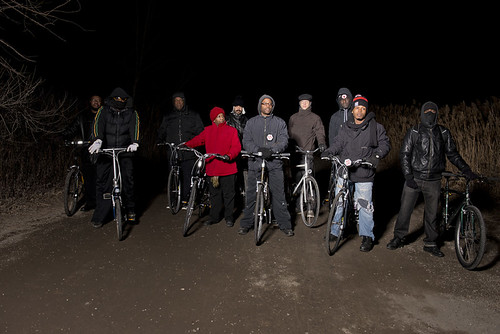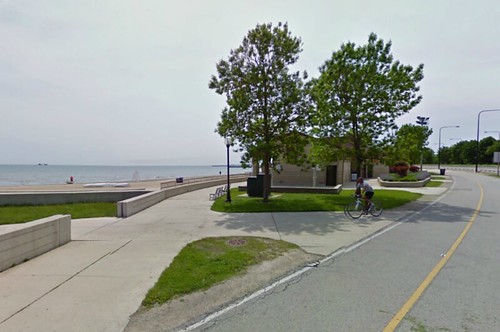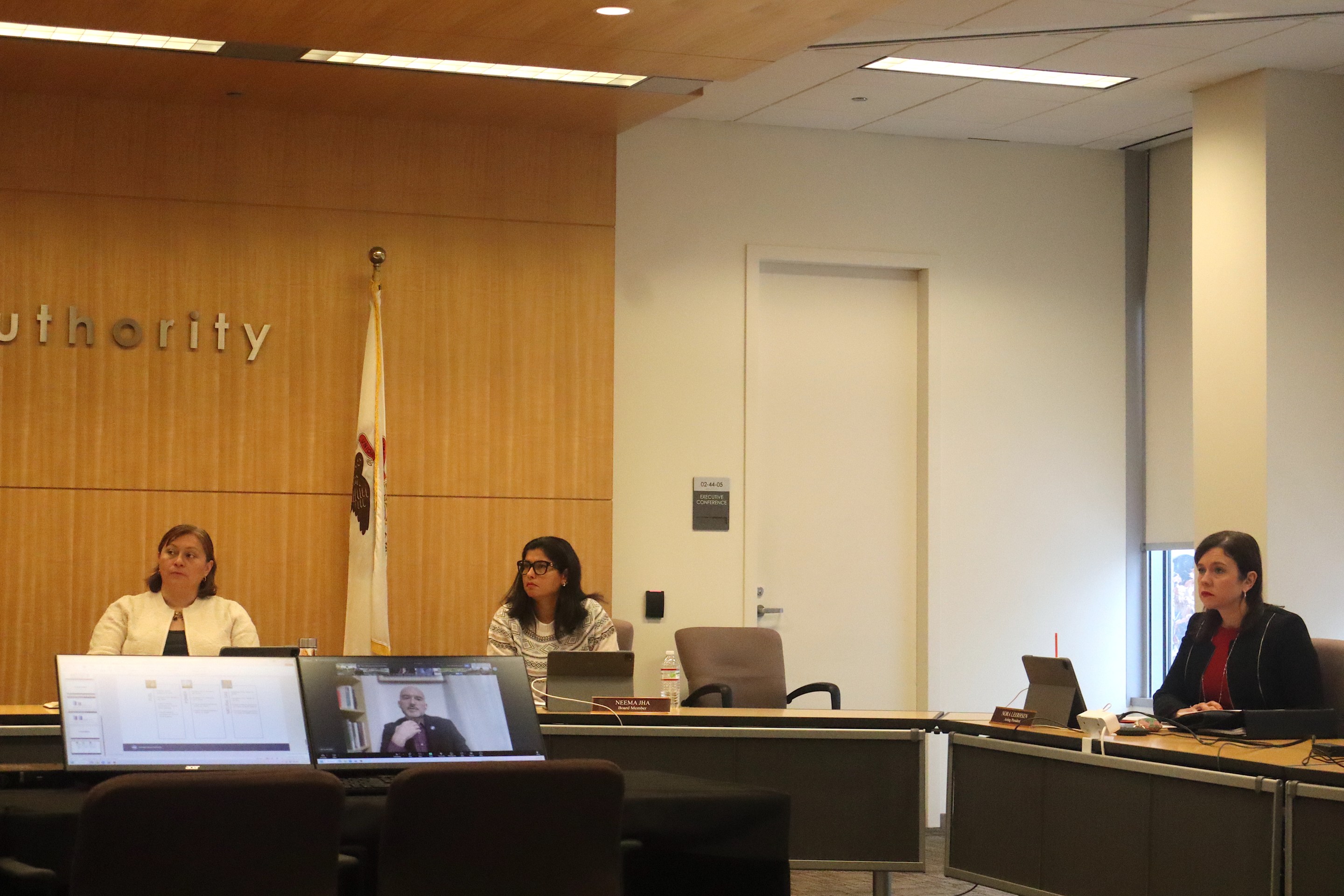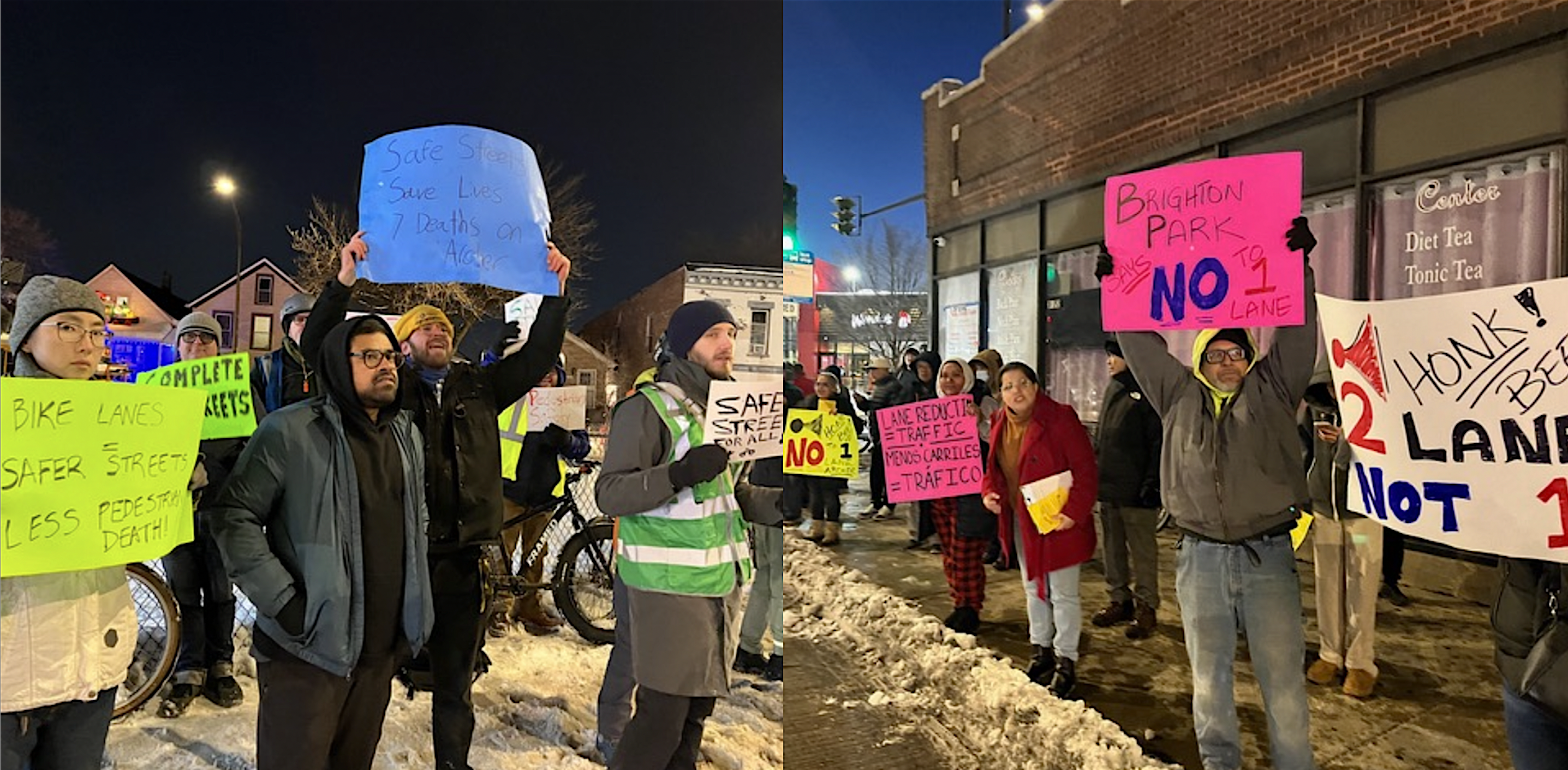[Streetsblog invited Olatunji Oboi Reed, president of Slow Roll Chicago, to share his perspective on our city’s bicycle equity challenges.]
Let me explain why I’m aggressively advocating for bike equity in Chicago.
About ten years ago, when I was 30 years old, I took an extended medical leave from my job at Citibank when work, family and relationship stresses brought on a severe bout of clinical depression. I have struggled with this illness on-and-off since high school.
During this time, I was experiencing a level of emotional pain so intense, an escape route was the only thing I could think about. One day, as I sat on my couch in Chatham, crying in the dark, I summoned the will to explore an alternative to taking my own life.
A few years before, when I was living in Champaign, my dear friend Ogunsola Hammond Carter sold me a green Diamondback mountain bike for about $50. After I moved back to Chicago, I hardly ever rode the bike. However, during my moment of crisis, I felt my final option was to try bicycling as a healthy escape from my pain.
I got up and went next door to my mother's house, where the bike sat in the basement with two flat tires, covered in dust and badly in need of a tune up. I resolved to take the Diamondback to John’s Hardware & Bicycle Shop for repairs, then go for a ride and see what happened.
Early in the morning on a beautiful summer Saturday, I put the now-rideable bike in the trunk of my car and drove to 63rd Street Beach. I walked the bike to the trail, took a deep breath and started to ride.
Soon, I noticed the tranquil beach and the waves rhythmically crashing on the sand. I started to play hide and seek with the sun, as I pedaled by the trees along the trail. The rustling leaves sang a song to me, drowning out the negativity in my head. I was smiling for the first time in months.
I began to take note of other Black people on the trail, enjoying themselves, walking and running and biking. Feeling a newfound desire to connect with other people, I would sometimes look up from my handlebars and make eye contact with a fellow brother or sister on the trail. I was a bit surprised to find that, every single time, I was greeted with a head nod, a warm smile, or a friendly “How you doing brother?” I no longer felt alone.
I had found the respite from my pain that I so desperately needed. Over the next several weeks, I rode as often as I could. It was still a struggle to find the will to get out of bed each day and do basic things like showering and eating, but I pushed through. Each ride gave me more energy to address my problems.
After ignoring my depression for nearly two decades, I decided to do something about it. I began seeing a therapist and started a regimen of medication. Eventually, I returned to work.
I continued to struggle with this mental illness, and it sometimes got the best of me, but I no longer considered suicide. Along with counseling, diet, yoga, and spending time with family and friends, biking is still my one of my greatest weapons against depression.
I know unequivocally that I am alive today because of that ride on the Lakefront Trail a decade ago. This knowledge fuels my current efforts to bring the many benefits of cycling to others in the Black community.
For a host of reasons, many Black Chicagoans have little interest in cycling. Like I once did, they view biking as something for children and White people on the Northside. Very few of them consider biking to be a viable form of transportation.

Some of this disconnection is cultural. Bikes have not been considered cool in Black neighborhoods and we haven’t explored ways to express our own style through our bikes.
Systemic issues are also to blame. For generations, Chicago institutions have unintentionally -- and, in some case, knowingly -- contributed to the divisions of race, class, culture, education, and geography that I am now working hard to bridge.
In this profoundly segregated city, the bicycle advocacy community has been largely White, affluent, and focused on the Northside. Meanwhile, violence prevention and job creation are the top priorities in predominantly Black, Brown, and low- to moderate-income neighborhoods, which means bicycling has not been a primary concern. We all have work to do in order to build a diverse, equitable bike culture.
Another reason the Black community is disconnected from bicycling, is the disparity in bike infrastructure. We don’t bike for transportation because we don’t feel safe doing so on streets. As a result, the city of Chicago hasn’t provided the same density of bike lanes, bike racks, and Divvy stations in our neighborhoods as on the Northside. This vicious cycle needs to end.
That is why I have formed a coalition with fellow black bike advocates Peter Taylor and Shawn Conley to work for a more equitable distribution of bike resources in Chicago. Together, we represent the African American-led groups Slow Roll Chicago, Red Bike and Green, Southside Critical Mass, the Major Taylor Cycling Club of Chicago, and Friends of the Major Taylor Trail. Last month, we released an open letter to the city, state, and other advocates, asking for a fair distribution of resources to Black communities on the Southside and Westside.

Our campaign has received a very positive response. Since then we have begun partnering with the Chicago Department of Transportation, the Mayor’s Bicycle Advisory Council, aldermen, the Active Transportation Alliance, Open Gov Hack Night [co-run by Streetsblog’s Steven Vance], and community members.
Together, we must work to achieve bike equity on the Southside and the Westside, so that bicycle ridership becomes equal throughout the city. That goal requires a higher level of investment in Black communities than in neighborhoods that already have high bike ridership.
I have great faith in the transformative power of bicycles on individuals and on communities. I urgently want Black communities on the Southside and Westside to enjoy the same health, safety, and economic benefits of biking that Northside neighborhoods do. Bicycling saved my life, and I know that it can improve the lives of countless other Black people.






